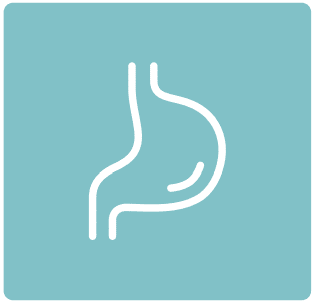Calcium is an essential mineral and the most abundant metal in the human body, contributing to a wide variety of biological functions.
While most people associate calcium with healthy bones, this mineral also acts as an electrolyte, maintaining communication between the brain and other parts of the body.
Fortunately for us, there are plenty of natural sources of calcium and we will also delve into how to take calcium supplements for best absorption if you can’t get enough naturally
However, eating plenty of calcium-rich foods may not be enough to stay healthy, as you need vitamin D to help your body absorb calcium. If you’re unsure of whether you’re getting enough calcium and vitamin D in your diet, want to learn more about this essential mineral, or get the scoop on calcium supplement tips, read on.
Table of Contents
- What is Calcium?
- Why Do You Need Calcium?
- Recommended Dietry Allowcances (RDA) of calcium
- Symptoms of Low Calcium Levels
- Mild Deficiency Symptomst
- Severe Calcium Deficiency
- Who Should Take Calcium Supplements?
- The Benefits of Calcium Supplements
- Possible Dangers of Calcium Supplements
- Things to Consider When Taking Calcium Supplements
- Different Types of Calcium Supplements
- Food Sources of Calcium
- In Summary
What is Calcium?

Calcium is an alkaline metal and the fifth most common element in both the earth’s crust and the human body, which can be found in diverse sources like limestone and cow’s milk. However, your body requires additional compounds to absorb and regulate calcium in the body, leaving many people pondering how to take calcium supplements for best absorption.
Much like iron, calcium can be found in a wide variety of food and drink, and many people get their recommended intake naturally through a balanced diet. However, a lot of people struggle to get enough calcium in their diet – whether through dietary restrictions like lactose intolerance or not eating a balanced diet – which is were the supplements come in
Why Do You Need Calcium?
Just like the old wife’s tales say, calcium is vital for building and maintaining strong bones, as over 99% of the calcium in your body is stored in the bones and teeth. This humble metal can help you build strong bones so long as you drink plenty of milk or remember how to take calcium supplements for best absorption.
But that’s not all calcium does for you, as it is responsible for a wide variety of biological functions in the bloodstream; sending nerve signals, releasing hormones and regulating how your muscles and blood vessels contract and dilate. Calcium is so essential for your body that if you don’t get your recommended daily allowance your body will extract it from your skeleton, weakening your bones and potentially causing osteoporosis if left untreated.
Recommended Dietry Allowcances (RDA) of calcium
| AGE | MALE | FEMALE |
|---|---|---|
| 0–6 Months | 200 mg | 200 mg |
| 7-12 Months | 260 mg | 260 mg |
| 1–3 Years | 700 mg | 700 mg |
| 4–8 Years | 1,000 mg | 1,000 mg |
| 9–13 Years | 1,300 mg | 1,300 mg |
| 14–18 Years | 1,300 mg | 1,300 mg |
| 19–50 Years | 1,000 mg | 1,000 mg |
| 51–70 Years | 1,000 mg | 1,200 mg |
| 71+ Years | 1,200 mg | 1,200 mg |
Symptoms of Low Calcium Levels
Calcium is arguably the most important mineral in your body, as it is necessary for a wide range of biological functions including bone health which literally supports you. However, despite calcium’s importance in overall health and the highly publicised link between calcium intake and skeletal health, as much as 68% of the US population is calcium deficient, based on a global study in 2015.
While teenagers and older people advised to take more calcium, vegans and those with dairy intolerances are more likely to suffer from calcium deficiency, regardless of age. Even if you follow all the scientific guidance on how to take calcium supplements for best absorption, dairy products are the most common source of calcium for millions of Americans
If you’ve recently cut back on dairy consumption or are concerned about how low your calcium levels could be, make sure to look out for these symptoms of calcium deficiency:
Mild Deficiency Symptomst

- Numbness
- Tingling Fingers
- Muscle cramps
- Lethargy
- Poor appetite
- Weak or brittle fingernails
- Difficulty swallowing
- Fainting.
Severe Calcium Deficiency

- Mental confusion, irritability, depression, and anxiety
- Tooth decay
- Insufficient blood clotting
- Bone fractures
- Osteopenia or osteoporosis
- Growth and development delays in children
- Heart problems involving blood pressure and heart rhythm
Who Should Take Calcium Supplements?
If you’ve noticed any of the symptoms on that list, it might be time to start thinking about how to take calcium supplements for best absorption or getting more dairy. But before you stock up on supplements or wheels of cheese, we recommend asking your doctor if you do need to increase your calcium levels, or if your health issues are caused by something else.
If your calcium intake is too low, your body will leech calcium from your bones, making them brittle and eventually causing osteoporosis, unless you’re able to get the calcium you need. In addition to elderly women (who are at a higher risk of osteoporosis), you might want to consider calcium supplements if you:
- Are vegan
- Have a high protein/sodium diet
- Struggle to absorb calcium due to Crohn’s etc
- Are being treated with corticosteroids
- Have osteoporosis
The Benefits of Calcium Supplements
If you are suffering from a calcium deficiency, then calcium supplements are exactly what the doctor ordered, as long as you know how to take calcium supplements for best absorption. In addition to helping you get rid of the symptoms of low calcium, these supplements have some surprising benefits such as:
Lose Weight
While we’d love to say yes to the question ‘does apple cider vinegar pills help with weight loss,’ there are no studies that prove ACV alone causes weight loss. For example, a 2018 study found that people on a diet that took ACV lost more weight than those who dieted without ACV, but they were all dieting… So far, only animal studies have directly linked ACV to weight loss (like this one on 18 lab rats) and human studies haven’t proven that consuming vinegar is better than just dieting for weight loss.
Preventing Bone Loss in Postmenopausal Women

After menopause, women will see a significant drop in their oestrogen levels, which will likely cause them to lose bone mass and raise their risk of osteoporosis. Fortunately, calcium supplements reduce bone loss in postmenopausal women by 1-2% and the effect is heightened in women with low calcium intakes.
They May Help with Fat Loss

Several studies have found a link between low calcium intake, high Body Mass Indexes (BMIs) and high body fat percentages. Furthermore, a 2016 study found that people on a calorie-restricted diet lost more weight when taking a calcium supplement, meaning that how to take calcium supplements for best absorption might well make it into your next diet plan.
Calcium May Help Lower the Risk of Colon Cancer

A 2004 review of 10 studies found that calcium from dairy products and supplements may lower the risk of colon cancer, which was backed up by another study 5 years later. If you’re concerned about the risk of colon cancer, now would be a good time to learn how to take calcium supplements for best absorption.
Supplements May Help Improve Metabolic Markers

Metabolic markers are biological factors that indicate underlying poor health, such as obesity, high blood pressure, and high blood sugar. In a 2016 study, pregnant women saw improvements in blood pressure and inflammation when taking calcium supplements, and other research shows that children of women who took calcium supplements during pregnancy had lower blood pressure at 7
Possible Dangers of Calcium Supplements
Unfortunately, calcium supplements have their share of risks and may cause some health problems if you take too many or don’t understand how to take calcium supplements for best absorption. Fortunately, there is little evidence to suggest that calcium supplements are bad for you, except in very high doses – exceeding 2,000mg a day – so you shouldn’t worry too much.
Things to Consider When Taking Calcium Supplements
When taking calcium supplements, there are several factors you need to be aware of, such as your daily calcium intake, recommended dosage, and which type of calcium is best for your needs:
How Much Should You Take?

Calcium supplements are intended to complement the calcium you get from your diet so that you can reliably meet your Recommended Daily Allowance (RDA). Supplementing your diet with calcium is a safe way to avoid the dangers of low calcium if you know how to take calcium supplements for best absorption and how much calcium you normally eat so you don’t get too much.
You May Need to Split up the Dose

More important than making sure you get enough calcium is making sure that your body can absorb all the calcium in your diet and supplements. Experts recommend taking no more than 500mg (half the NIH average RDA) in one go and taking plenty of vitamin D to help your body absorb the calcium over time.
Medication Interactions

If you’re taking other medication as well as calcium supplements, you should notify your doctor as they can interfere with how your body absorbs other minerals and antibiotics. If you’re deficient in iron, zinc or magnesium and wondering how to take calcium supplements for best absorption, then try taking calcium between meals and maximising the mineral content of your diet.
Dangers of Too Much Calcium

According to the National Institute of Health, the average adult should be getting around 1,000mg of calcium a day, and regularly taking more can put you at risk of hypercalcemia. Symptoms of high calcium levels include excessive thirst and stomach issues, so ask a doctor if you notice these issues after taking calcium supplements.
How to Take Calcium Supplements for Best Absorption

Vitamin D is required to absorb calcium, so make sure that your Vitamin D levels are topped up before adding more calcium to the mix and try taking smaller doses throughout the day. In addition, you may see better results by taking your calcium supplements with food, depending on the form of calcium used.
Different Types of Calcium Supplements
Calcium supplements can come in a wide variety of shapes and sizes – from liquids to capsules – leaving many people wondering how to take calcium supplements for best absorption. Despite the drastic visual differences between these forms, the key difference lies in what type of calcium they contain, and the most common types are
Calcium Carbonate
Calcium carbonate is the cheapest and most widely available form of calcium in supplements, thanks to its high elemental calcium levels (40% pure calcium) and simple production. Unfortunately, this form is more likely to cause side effects such as constipation, bloating and gas, which is why it is recommended to take calcium carbonate with food.
Calcium Citrate
Calcium citrate is less pure (at 21% elemental calcium), but easier for your body to absorb, regardless of how to take calcium supplements for best absorption. Fortunately, this form of calcium is more easily absorbed than calcium carbonate and is recommended for people with Irritable Bowel Syndrome (IBS) or low levels of stomach acid.
Food Sources of Calcium
A balanced diet and plenty of exercise is worth more than a hundred supplements, as a healthy lifestyle means you absorb a wide variety of nutrients, not just the ones in your pills. If you think that you’re not getting enough calcium in your diet and don’t want to worry over the science of how to take calcium supplements for best absorption, try eating more
- Fortified food and drinks
- Dairy, such as milk, cheese, and yoghurt
- Fish with bones, such as salmon or sardines
- Leafy greens like kale, spinach and collard greens
- Tofu and soy beans (or edamame)
- Beans and lentils
In Summary
Calcium supplements are lifesavers for people struggling with calcium deficiencies and osteoporosis, though vitamin D is just as important for calcium absorption. When considering how to take calcium supplements for best absorption, make sure you get enough Vitamin D and take your calcium carbonate with a meal to avoid stomach disruptions.
However, none of this is necessary if you’re already getting enough calcium from your diet and/or other supplements, so try to measure your calcium intake before taking supplements. The best way to get essential vitamins and minerals is always through a balanced diet, though taking calcium supplements in small doses is a great way to meet your recommended daily intake.





